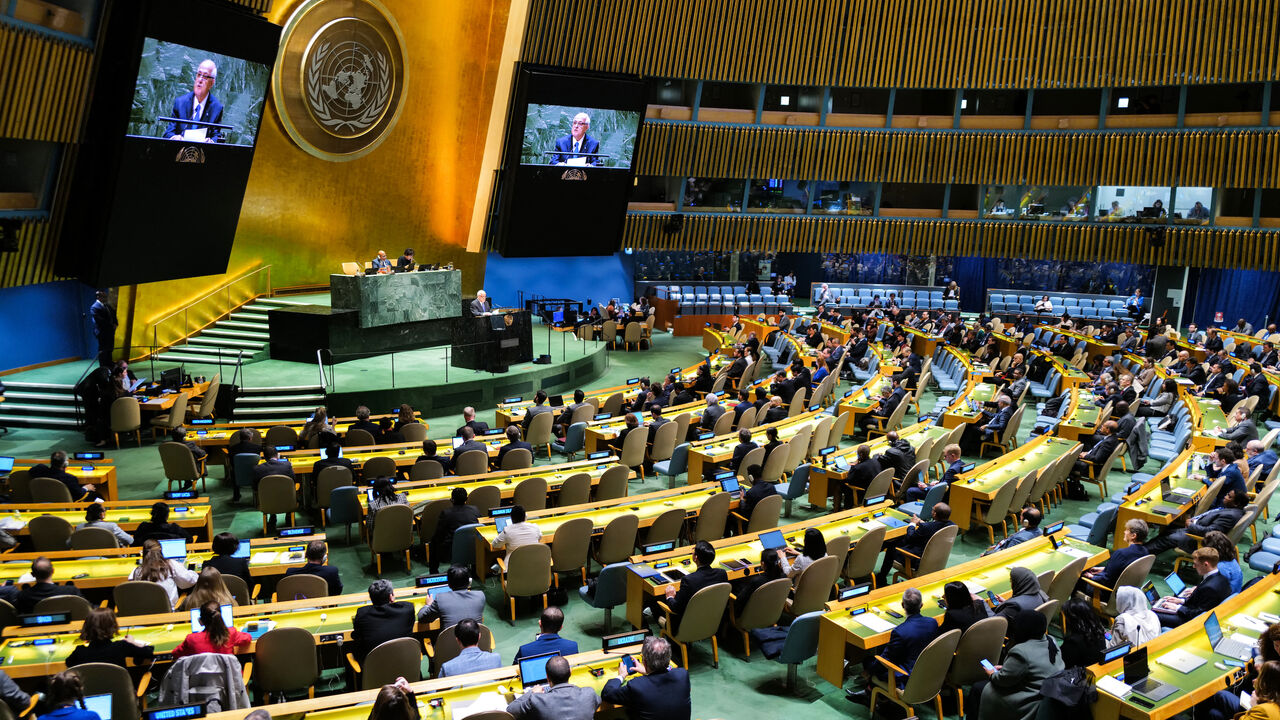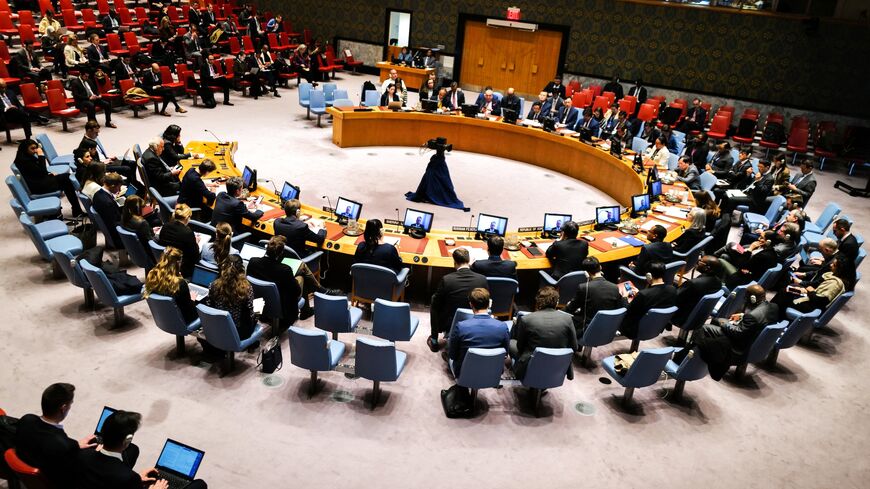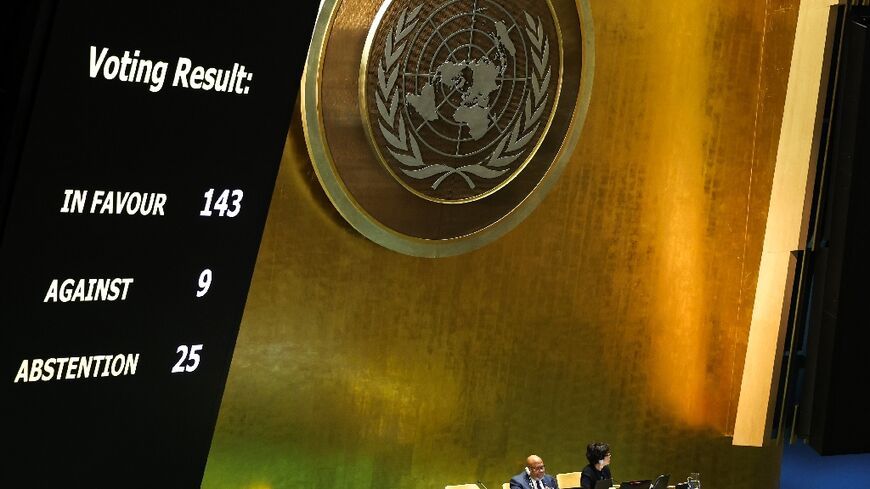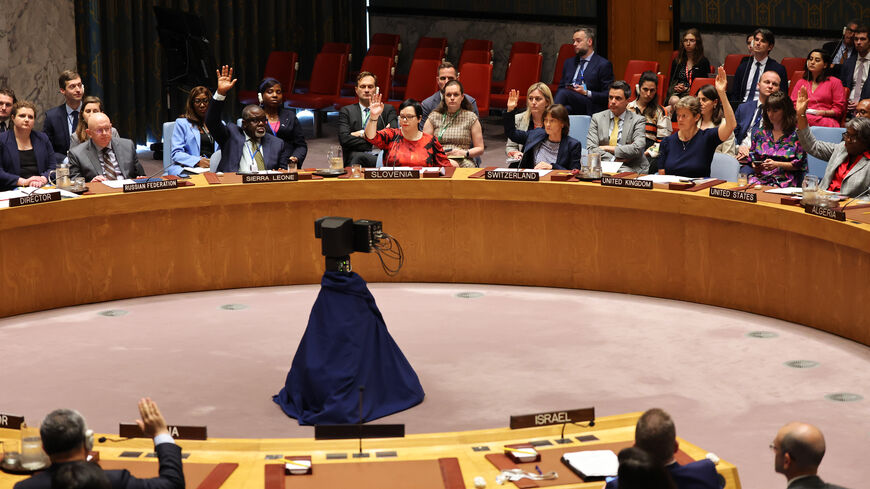General Assembly votes to grant Palestine more UN rights short of membership
By a significant majority, the UN General Assembly recommended the Security Council reconsider the Palestinian bid for full membership.

WASHINGTON — The UN General Assembly voted overwhelmingly Friday to grant Palestine additional privileges at the United Nations and called on the Security Council to reconsider its request for full membership following the US veto last month.
The resolution was adopted with 143 votes in favor, 9 against and 25 abstentions.
As expected, the United States voted against the Palestinian bid. It used its veto on April 18 to block a widely supported Security Council resolution that would have made Palestine the 194th member of the United Nations.
“Our vote does not reflect opposition to Palestinian statehood,” US Deputy Ambassador to the UN Robert Wood said after the vote. “Instead, it is an acknowledgement that statehood will come only from a process that involves direct negotiations between the parties.”
The United States has long opposed the Palestinian push for recognition at the world body. Successive US administrations have said there must first be a negotiated agreement between the Palestinians and Israel, which in 1967 captured the territories the Palestinians seek as part of their independent homeland.
Palestine is currently a non-member observer state, the same status held by the Vatican. It can’t vote in the General Assembly but can participate in UN bodies such as the International Criminal Court.
The resolution approved Friday states that Palestine is “qualified for membership” and recommends the Security Council “reconsider the matter favorably.”
It also grants Palestine a number of “additional rights and privileges” that stop short of full UN membership. They include the right to be seated among member states in alphabetical order and the right to co-sponsor proposals.
Israel’s ambassador, Gilad Erdan, condemned the resolution as tantamount to “gutting” the United Nations’ founding charter. Standing before the 193-member body, he proceeded to shred a copy of the charter in a mini shredder.
“I will hold up a mirror for you,” Erdan said. “You can see exactly what you are inflicting upon the UN Charter with this destructive vote.”
The resolution states that Palestine does not have the right to vote in the General Assembly or put forward its candidacy to UN organs. The language was inserted to avoid triggering US legislation from the 1990s that requires the United States to end funding to UN agencies that recognize a Palestinian state.
Ahead of the vote, a group of 25 Senate Republicans introduced legislation — the No Official Palestine Entry (NOPE) Act — that would prevent US funding from going to the United Nations and other organizations that grant the Palestinians “any status, rights, or privileges beyond observer status.”
Palestine will remain a non-member observer state, a status it has held since 2012. Its ambassador, Riyad Mansour, told the General Assembly chamber that voting in favor of the resolution would be “a vote for Palestinian existence.”
"It is not against any state, but it is against the attempt to deprive us of our state," Mansour said. "That is why the Israeli government is so opposed to it, because they oppose our independence and the two-state solution altogether."
To be admitted as a new member, Palestine would need the approval of at least nine Security Council members and no vetoes by the United States, Britain, France, Russia or China, followed by a two-thirds majority vote in the General Assembly.
Maya Ungar, UN analyst at the International Crisis Group, called Friday’s vote “a real symbolic victory for the Palestinians” that demonstrated “a tidal wave of support from the international community.”
“However, it is important not to overstate its importance in the broader conflict,” Ungar told Al-Monitor. “This vote does not tangibly do anything to stop the suffering of people in Gaza right now."
Nearly 35,000 Palestinians are estimated to have died in the seven-month Israeli military campaign in Gaza, according to health officials in the Hamas-run territory. Israel launched its counteroffensive in response to the militants’ cross-border attack on Oct. 7, during which some 1,200 people were killed and 250 others abducted.
Israel bombarded parts of the crowded city of Rafah as talks aimed at securing a cease-fire and the release of the Hamas-held hostages stalled this week. UN Secretary-General Antonio Guterres warned Friday that an all-out Israeli assault on Gaza’s southernmost city would lead to "epic humanitarian disaster."






